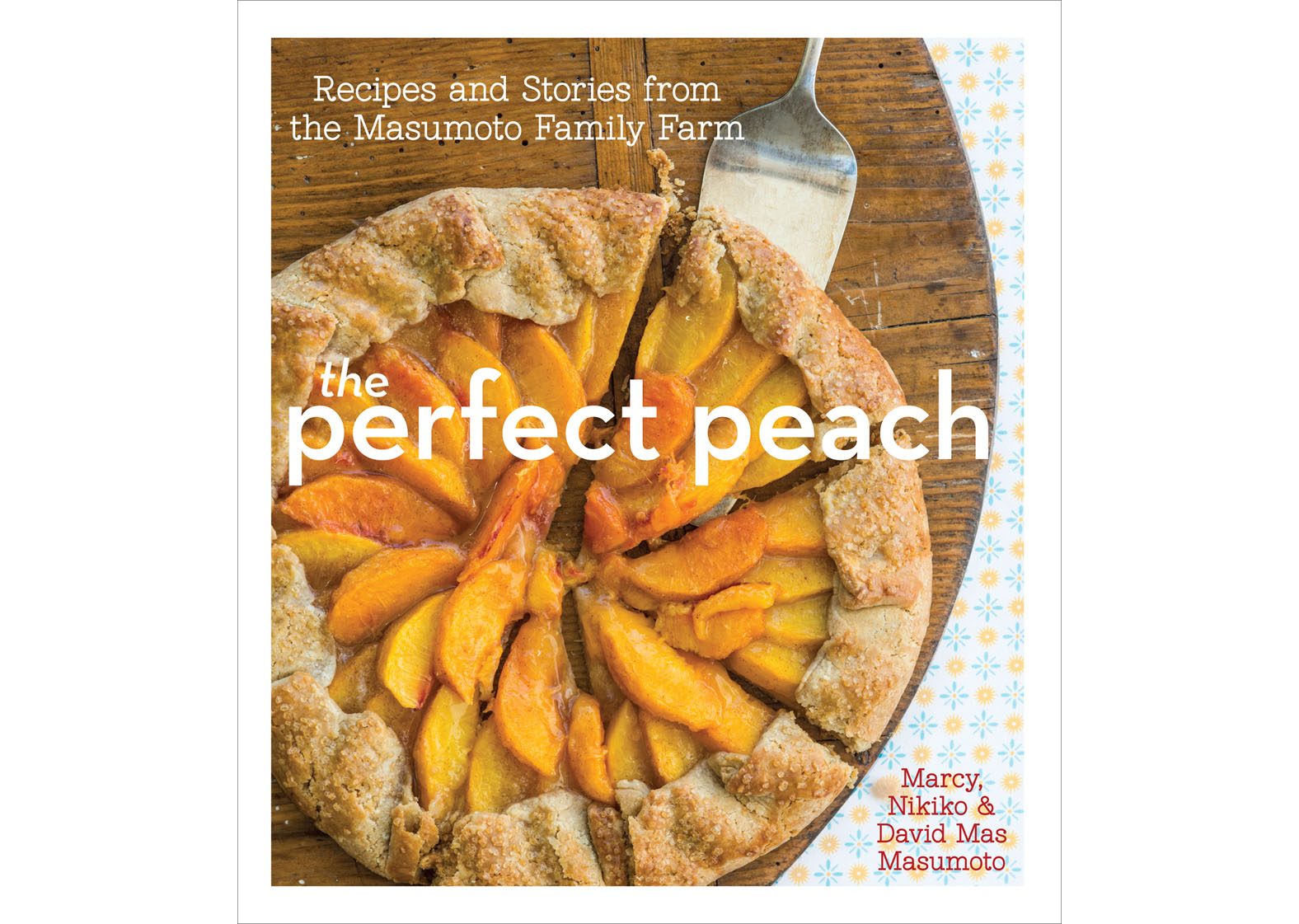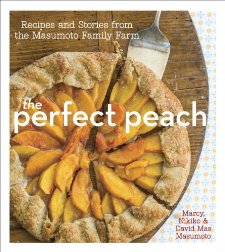NB: Reprinted (so to speak) from the Summer 2013 Eden, the quarterly journal of California Garden and Landscape History Society, www.cglhs.org. Photo: Staci Valentine, from: David Mas Masumoto, Marcy Masumoto, and Nikiko Masumoto, The Perfect Peach: Recipes and Stories from the Masumoto Family Farm (10 Speed Press, 2013)
The Perfection of the Peach: An Interview with Mas Masumoto
(Note: David Mas Masumoto’s replies to my questions during a May 7, 2013, telephone interview; the following are not direct quotations. Rather, they are summarized responses, as per Mr. Masumoto’s request.)
Paula M. Panich: “I farm stories; my main story is about trying to grow the perfect peach,” you write in Wisdom of the Last Farmer.
Mas Masumoto: It’s almost a mantra for small, sustainable organic farmers. We don’t do it for money. Farming stories means you bring in the entire complex—working with nature, the land, the family, the larger social issue of the history of the farmworkers, their wages, and one’s own personal legacy, the history of my grandparents coming from Japan . . .
Q. Was it difficult to publish your first book (Epitaph for a Peach)? That is, making an essentially private act of writing in a journal suddenly public?
A. It was a huge decision. Farmers work independently, individually, privately. You’re surrounded by hundreds of plants, not people. To allow a personal and private life to go public was a big decision for me and for the family. We are, after all, a family farm.
As a writer, though, you want to strike a nerve with personal thoughts and interests, and you do that by revealing yourself. You want to connect with your audience, your readers.
As farmers, you don’t really connect except vicariously through your produce . . . but the whole story of farming has evolved. There’s transparency now. People are interested in food safety. More and more consumers are interested in the backstory of food. The small family farm is well positioned for this.
Q. You have written in Wisdom of the Last Farmer: “[Our farm] stands for the relationship between good food, good stewardship of the land, great love for the natural world and the continuity of life.” And I would add great generosity.
A. There’s a constant and terrifying and wonderful dichotomy in our world: the notion of change. Part of me wants to keep this land exactly the same as it has come down to me. But, for example, the path of the high-speed rail line will cut through the heart of the Central Valley. This will happen. Accepting this is a part of change. The high-speed rail will connect rural and urban California, for good and for bad. It’s good to have this pair of opposites.
People will see a very different kind of agriculture from what they see on Interstate 5. They’ll see smaller farms and far more diverse agriculture. The train will provide a window with a new view of the work we do.
The train will be about ten miles west of those of us in Del Rey. Of course if the path of the train was proposed to cross through the heart of my farm, I would feel differently! But it will come close enough.
It was interesting two years ago when I went to Japan. A high-speed rail line now connects its southernmost island, Kyushu, a very agrarian place not unlike the Central Valley of California, to the mainland. It creates an interesting dynamic, this island now connected to the rest of Japan.
Now we will have rural California—this “other” California—connected by train.
Q. A sad, poignant note from your book Four Seasons in Five Senses describes how you remember a twenty-pound box of peaches selling for two dollars in 1961 and for two dollars in 2001.
A. We must recognize the challenges of the economic forces of what we do. At the same time, that’s not why we do it. It’s a paradox, a dilemma, two forces not working together. But it’s this very interface of life that brings action. If I farmed just for money, or just for aesthetics—that would be one thing. But it’s the median point—the in-between place—that brings the most flavor to life, the dynamic. And from this place I get energy and passion. It’s a challenge and a curse, but at the same time, it brings fantastic joy.
Q. Please tell us about your latest book, The Perfect Peach: Recipes and Stories from the Masumoto Family Farm, written with your wife, Marcy Masumoto, and your daughter, Nikiko Masumoto.
A. It’s a peach cookbook, with twenty essays and fifty recipes, along with photographs. My wife and daughter wrote the headnotes and so forth to the recipes, and I wrote the essays.
It’s a literary cookbook about the farm and our peaches connected to recipes. So it’s not just about peaches in recipes, but also about the relationship of the recipes to death, sweat—and much else. How will all of that add flavor to a recipe for peach preserves?
We make all sides come together. We cannot separate the flavors: They are in all of our stories.
* * *


